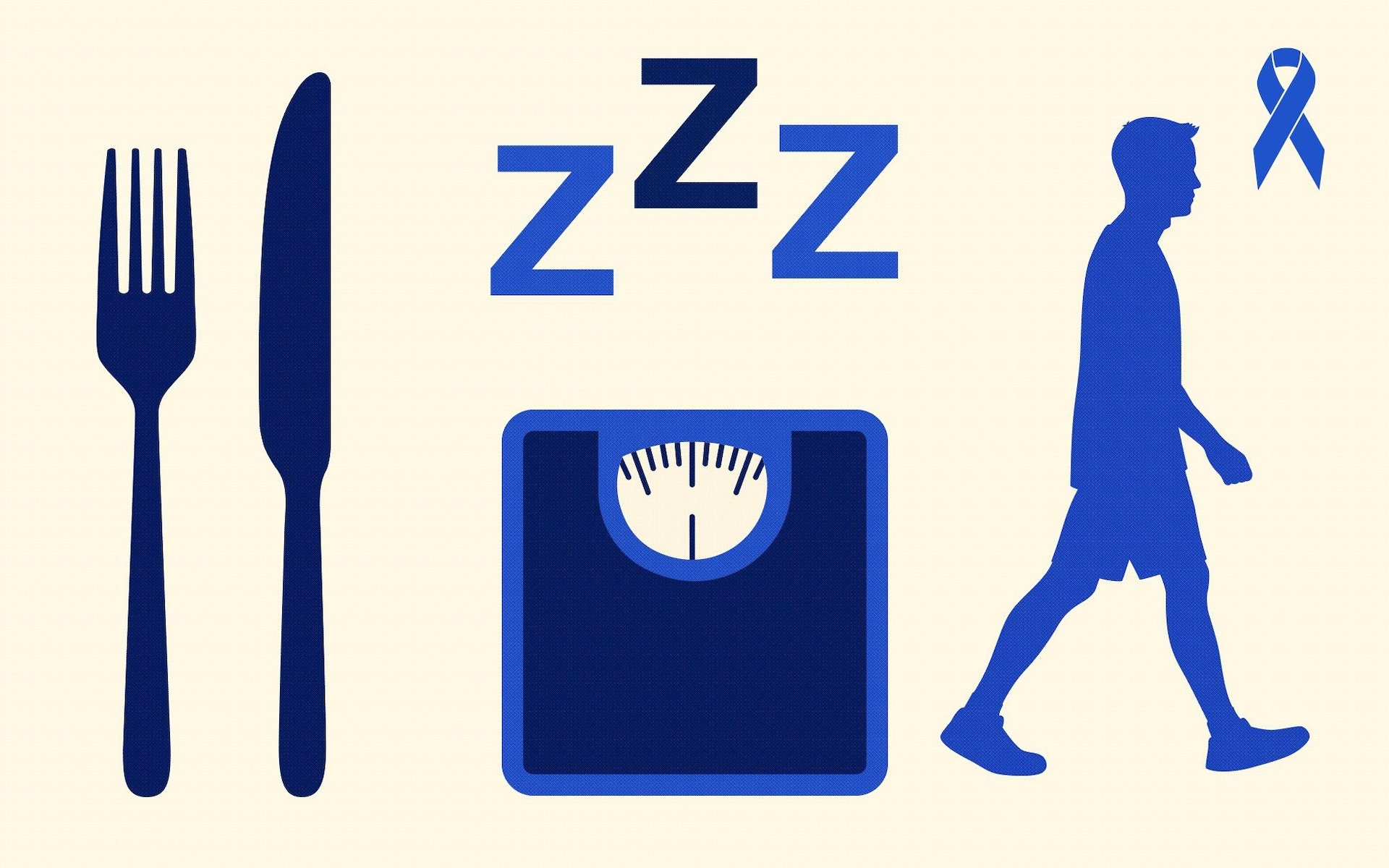Five Ways to Reduce Prostate Cancer Risk: Diet and Exercise Tips

Understanding the Risk Factors for Prostate Cancer
Prostate cancer is a significant health concern, particularly in Britain where it claims the lives of 12,000 men annually. In the same timeframe, approximately 56,000 British men are diagnosed with the disease—equivalent to the entire population of Greenland. This alarming statistic underscores the importance of understanding the factors that contribute to the development of this condition.
Genetics play a crucial role in determining an individual's risk of prostate cancer. Black men, for instance, face twice the risk compared to white men due to a higher likelihood of carrying risky mutations of the BRCA gene, which are associated with more aggressive forms of cancer. Additionally, men with close relatives who have had prostate cancer or breast cancer are also at increased risk. Age is another factor, with the likelihood of developing prostate cancer rising significantly after the age of 50.
While genetics can predispose individuals to the disease, lifestyle choices can significantly influence a man’s biological risk. Experts suggest that certain lifestyle changes may help mitigate this risk, even for those with a family history of the condition.
The Role of Diet in Prostate Cancer Prevention
Diet is a major factor in the development of various cancers, including prostate cancer. While the link between diet and prostate cancer is not as well-established as with other cancers like bowel cancer, there is evidence suggesting that dietary choices can impact risk levels.
Professor Nick James from the Institute for Cancer Research notes that while red meat consumption might slightly increase the risk of prostate cancer, accurately observing dietary habits can be challenging. Vegetarians, for example, may lead healthier lifestyles overall, which could contribute to lower cancer risks. However, the consensus among experts is that a heart-healthy diet is also beneficial for the prostate.
The Mediterranean diet, which emphasizes oily fish, unsaturated fats, and a reduced intake of processed foods, has been linked to a lower risk of aggressive prostate cancer. Some studies suggest that adhering to this diet can reduce both incidence and mortality by 10%. Lycopene, found in raw tomatoes, is also considered potentially helpful in reducing prostate cancer risk.
The Benefits of Regular Exercise
Exercise is another critical factor in prostate cancer prevention and management. Research shows that regular physical activity can improve outcomes for men already diagnosed with the disease, reducing complications and recurrences. For those without the condition, exercise may also play a protective role.
A Harvard study from 2019 found that men who engaged in vigorous exercise were 30% less likely to develop advanced prostate cancer and had a 25% reduced risk of mortality from the disease. NHS guidelines recommend 150 minutes of moderate-intensity exercise or 75 minutes of vigorous exercise per week, which can be achieved through simple activities like a brisk 30-minute walk five times a week.
Ejaculation Frequency and Prostate Health
There is some evidence that frequent ejaculation may lower the risk of prostate cancer. Professor Robinson explains that the prostate produces fluid during ejaculation, and regular ejaculation could have a cleansing effect, reducing the buildup of potentially harmful substances.
A large study tracking over 30,000 men found that those who ejaculated more than 21 times per month were 20% less likely to develop prostate cancer compared to those who ejaculated four to seven times. While some researchers suggest that men who ejaculate more often may also lead healthier lifestyles, the potential benefits of regular sexual activity or masturbation remain worth considering.
Weight Management and Prostate Cancer Risk
Maintaining a healthy weight is essential for reducing the risk of various diseases, including prostate cancer. Studies have shown that being overweight or gaining weight in adulthood increases the risk of developing advanced prostate cancer and recurrence after treatment.
One study followed 170 men for 10 years and found that those who gained at least four inches around their waists had a 40% greater risk of developing aggressive prostate cancer. Losing abdominal fat can significantly reduce this risk, highlighting the importance of weight management as part of a comprehensive health strategy.
The Importance of Sleep
Sleep is a fundamental component of overall health and may also play a role in prostate cancer risk. Research suggests that long-term poor sleep quality could increase the risk of prostate cancer by 15 to 20%, based on data from 30,000 men. While the exact relationship between sleep and cancer remains complex, getting at least seven hours of sleep each night can protect against numerous common diseases.
Experts emphasize that many of the strategies for reducing prostate cancer risk involve living a healthy life overall. Prioritizing sleep, along with maintaining a balanced diet, engaging in regular exercise, managing weight, and ensuring adequate sexual activity, can all contribute to lowering one’s risk.
Post a Comment for "Five Ways to Reduce Prostate Cancer Risk: Diet and Exercise Tips"
Post a Comment